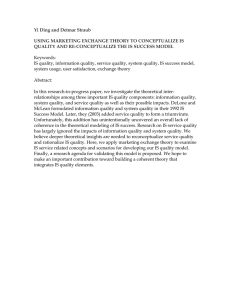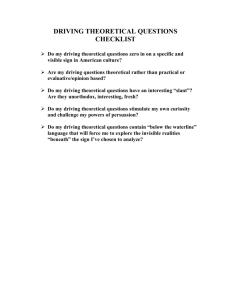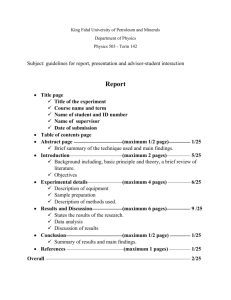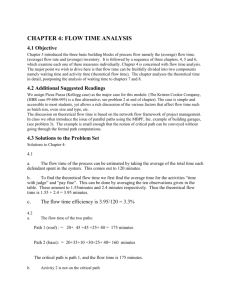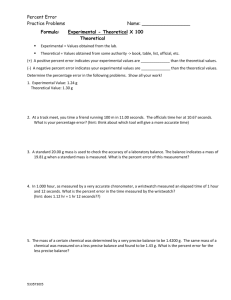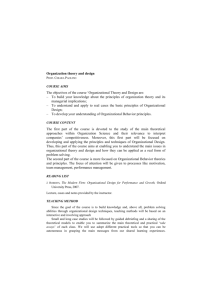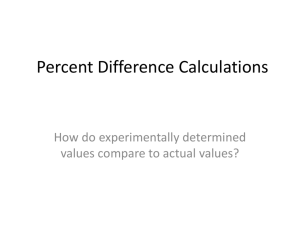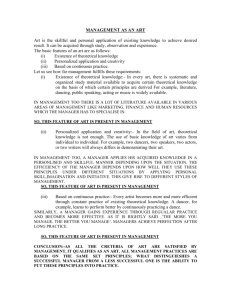Case Report Information
advertisement
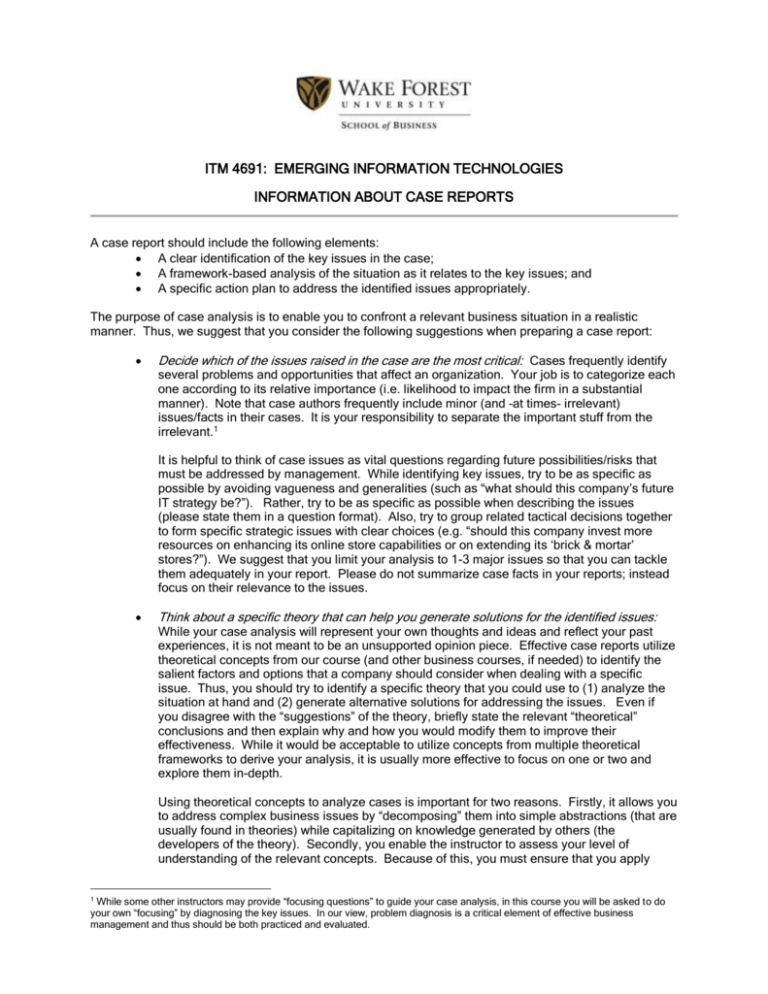
ITM 4691: EMERGING INFORMATION TECHNOLOGIES INFORMATION ABOUT CASE REPORTS A case report should include the following elements: A clear identification of the key issues in the case; A framework-based analysis of the situation as it relates to the key issues; and A specific action plan to address the identified issues appropriately. The purpose of case analysis is to enable you to confront a relevant business situation in a realistic manner. Thus, we suggest that you consider the following suggestions when preparing a case report: Decide which of the issues raised in the case are the most critical: Cases frequently identify several problems and opportunities that affect an organization. Your job is to categorize each one according to its relative importance (i.e. likelihood to impact the firm in a substantial manner). Note that case authors frequently include minor (and –at times- irrelevant) issues/facts in their cases. It is your responsibility to separate the important stuff from the irrelevant.1 It is helpful to think of case issues as vital questions regarding future possibilities/risks that must be addressed by management. While identifying key issues, try to be as specific as possible by avoiding vagueness and generalities (such as “what should this company’s future IT strategy be?”). Rather, try to be as specific as possible when describing the issues (please state them in a question format). Also, try to group related tactical decisions together to form specific strategic issues with clear choices (e.g. “should this company invest more resources on enhancing its online store capabilities or on extending its ‘brick & mortar’ stores?”). We suggest that you limit your analysis to 1-3 major issues so that you can tackle them adequately in your report. Please do not summarize case facts in your reports; instead focus on their relevance to the issues. Think about a specific theory that can help you generate solutions for the identified issues: While your case analysis will represent your own thoughts and ideas and reflect your past experiences, it is not meant to be an unsupported opinion piece. Effective case reports utilize theoretical concepts from our course (and other business courses, if needed) to identify the salient factors and options that a company should consider when dealing with a specific issue. Thus, you should try to identify a specific theory that you could use to (1) analyze the situation at hand and (2) generate alternative solutions for addressing the issues. Even if you disagree with the “suggestions” of the theory, briefly state the relevant “theoretical” conclusions and then explain why and how you would modify them to improve their effectiveness. While it would be acceptable to utilize concepts from multiple theoretical frameworks to derive your analysis, it is usually more effective to focus on one or two and explore them in-depth. Using theoretical concepts to analyze cases is important for two reasons. Firstly, it allows you to address complex business issues by “decomposing” them into simple abstractions (that are usually found in theories) while capitalizing on knowledge generated by others (the developers of the theory). Secondly, you enable the instructor to assess your level of understanding of the relevant concepts. Because of this, you must ensure that you apply 1 While some other instructors may provide “focusing questions” to guide your case analysis, in this course you will be asked to do your own “focusing” by diagnosing the key issues. In our view, problem diagnosis is a critical element of effective business management and thus should be both practiced and evaluated. theoretical concepts in a clear and precise manner; superficial references to them will not suffice. Also, you must show how the concepts relate to your specific action plan. As cases require you to make decisions with incomplete and imperfect information, it is likely that you will need to make certain assumptions in your analysis. In such instances, please state and explain your assumptions clearly, and ensure that they are consistent with the facts in the case. Finally, while you should consider multiple alternative solutions in addressing an issue, you should spend most of your time summarizing your chosen alternative. You should note, however, that two-way defenses (those that knock down counterarguments/alternatives) are usually stronger than one-way defenses (those that argue strongly in only one direction but ignore potential counter-arguments). Develop a detailed, feasible action plan to execute your chosen solution: Once you decide the best way to address an issue, it is important to think about how the company should execute your suggestion. Here, you need to be specific, thorough and must consider the downside/risks of your recommendations. Provide detailed action steps that take into account the specific business situation (e.g. likely availability of resources, level of IT sophistication, political support, environmental risks, etc). Avoid vague, generic statements that apply to all business situations (e.g. “the company must conduct a market study and then craft an effective marketing strategy using its results”). Instead, use the analysis and your own knowledge, experience and creativity to identify a comprehensive sequence of specific actions to solve the identified issues (both in the short and long term). Your reports will be evaluated based on how well they address each of the above three areas. To receive high evaluation scores, reports must exhibit (1) appropriate use of theoretical concepts from the course, (2) analytical and logical rigor in crafting arguments, (3) justification and soundness of conclusions, (4) specificity of statements and (5) clarity of presentation. Case reports are due at the beginning of the relevant case discussions. The reports should not exceed 1200 words in length (including text in tables, figures, exhibits, and appendices). Please indicate the word count on the first page of your report. Case reports may not be submitted late. You may submit your reports by hand or by email; electronic submissions must be in MS Word format.
